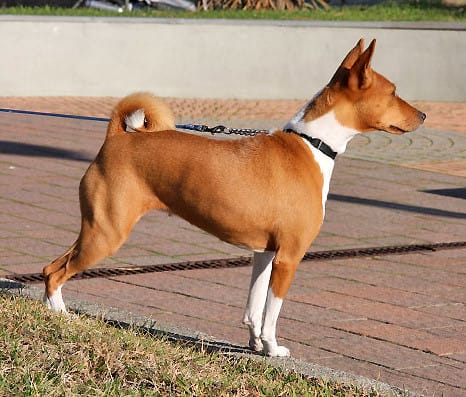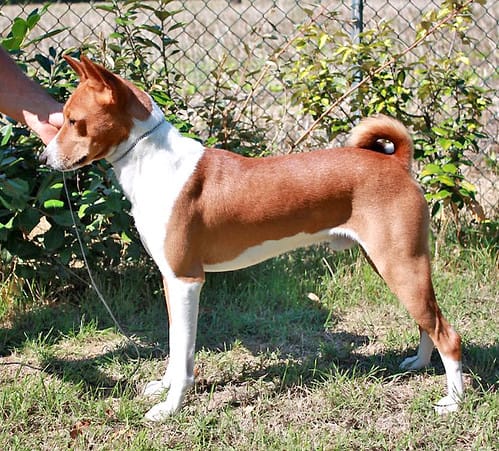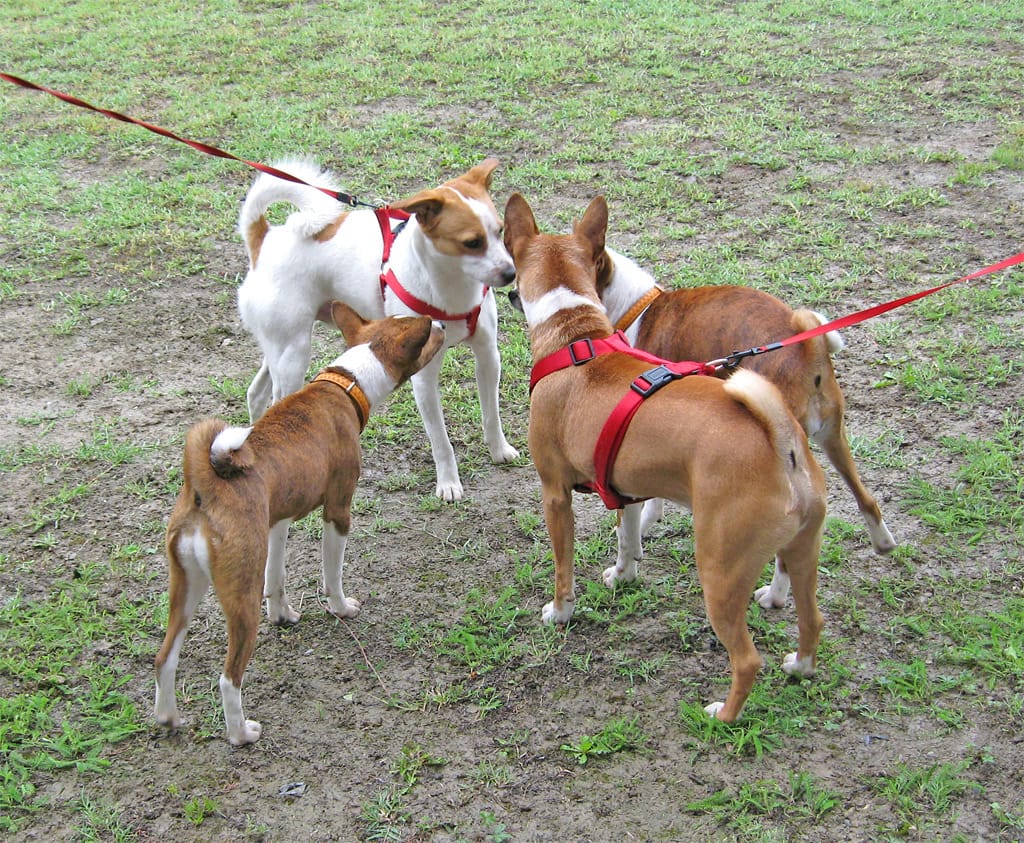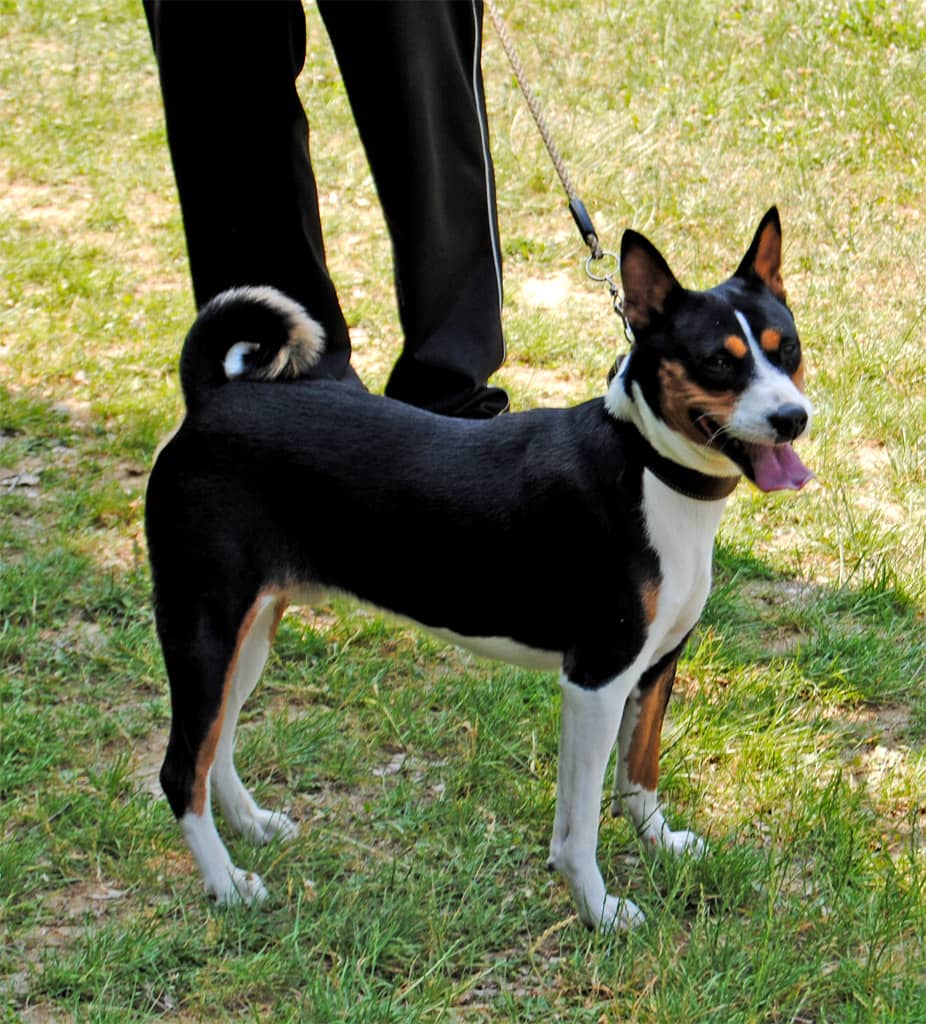Welcome to our comprehensive guide on the Basenji Hound, an ancient and unique breed that has captured the hearts of dog enthusiasts worldwide. Known for their intelligence, agility, and distinct vocalizations, Basenjis are a fascinating breed with a rich history. In this article, we will delve into the characteristics, history, care, training, and health considerations of Basenji Hounds. Whether you are a current Basenji owner, are considering adopting one, or are simply curious about this captivating breed, this article will provide valuable insights and expert advice.
Basenji Hound: A Breed Like No Other
The Basenji Hound, also known as the “African Barkless Dog,” is a small to medium-sized breed originating in Central Africa thousands of years ago. These dogs have a distinctive appearance: a compact and muscular body, erect ears, and a curled tail. One of the most unique traits of Basenjis is their inability to bark. Instead, they produce a range of exciting vocalizations, including yodels, howls, and even “bars.”
Basenjis are renowned for their intelligence and independent nature. They possess a cat-like cleanliness and are often observed grooming themselves meticulously. Their short and fine coat comes in various colors, including red, black, tricolor, and brindle. With their alert and curious expressions, Basenjis exude a sense of confidence and grace.
History of the Basenji Hound
Over time, Basenjis made their way to Central Africa, specifically the Congo region, where they continued to play a vital role in hunting and guarding.
It was in the 19th century that Basenjis were introduced to the Western world. In the 1930s, a group of Basenjis was brought to England and the United States, captivating dog enthusiasts with unique traits. Since then, the breed’s popularity has grown steadily, and Basenjis are now cherished family pets and successful show dogs around the globe.
These dogs were treasured and even depicted in ancient Egyptian tombs and artwork.
Characteristics and Temperament
Temperament: A Unique Personality
Basenji Hounds are known for their independent and self-assured nature. They possess a strong-willed character and can be pretty mischievous at times. Basenjis form deep bonds with their human families despite their independent streak and display unwavering loyalty. They thrive on affection and enjoy being active in their family’s daily activities.
Intelligence: Clever Canines
Basenjis are brilliant dogs, ranking 78th out of 138 breeds in Stanley Coren’s “The Intelligence of Dogs.” However, their intelligence often comes hand-in-hand with a mischievous streak. Basenjis have a knack for problem-solving and can find creative ways to get what they want. This intelligence also means they respond well to training when approached with patience, positive reinforcement, and consistency.
Energy Level: Active and Agile
As a hound breed, Basenjis naturally tend to be active and agile. They possess remarkable speed and endurance, making them excellent companions for outdoor activities such as jogging, hiking, and agility training. Regular exercise is essential to keep Basenji physically and mentally stimulated, preventing them from becoming bored and engaging in destructive behaviors.
Vocalizations: The Barkless Dogs
One of the most intriguing aspects of Basenji Hounds is their unique vocalizations. Unlike most dog breeds that bark, Basenjis produce a range of sounds that can be described as yodels, howls, or even “baroos.” These vocalizations are often a sign of excitement, happiness, or an attempt to communicate with their human counterparts. However, it’s important to note that while Basenjis may not bark, they are not completely silent and can still make other noises.
Cleanliness: Cat-Like Grooming Habits
Basenjis are renowned for their meticulous grooming habits, which can be attributed to their shared ancestry with cats. They are often observed licking their paws and using them to clean their faces, similar to how cats groom themselves. This cat-like cleanliness is an endearing trait that sets Basenjis apart from many other dog breeds.
Care and Maintenance
Exercise Needs: Keeping Basenjis Active
Basenji Hounds are an active breed that requires regular exercise to stay happy and healthy. Aim for at least 30 to 60 minutes of physical activity each day. This includes brisk walks, jogs, playtime in a securely fenced area, or dog sports like agility or lure coursing. Mental stimulation is also vital, so provide puzzle toys, interactive games, and training sessions to keep their minds sharp.
Grooming: Minimal Shedding, Minimal Maintenance
One of the advantages of owning a Basenji is its low-maintenance coat. Basenjis have short, fine hair that sheds minimally throughout the year. Regular brushing with a soft bristle brush or grooming mitt will help remove loose hairs and keep their coat looking shiny. Regular nail trims, ear cleaning, and dental care should also be part of your Basenji’s grooming routine.
Dietary Needs: A Balanced and Nutritious Diet
To maintain optimal health, Basenjis require a balanced and nutritious diet. High-quality commercial dog food appropriate for their age, size, and activity level is generally recommended. Monitoring their calorie intake is crucial to prevent obesity, as Basenjis are prone to gaining weight if overfed. Consult your veterinarian for specific dietary recommendations tailored to your Basenji’s individual needs.
Socialization: Early and Ongoing
Proper socialization is essential for Basenji Hounds to develop into well-adjusted and confident dogs. Start socializing your Basenji puppy early, exposing them to various people, animals, sounds, and environments. Positive experiences during this critical period will help them grow into friendly and adaptable adults. Ongoing socialization throughout their lives will also contribute to their overall well-being.
Training: Patience, Consistency, and Positive Reinforcement
Training a Basenji requires patience, consistency, and positive reinforcement techniques. Basenjis are intelligent but stubborn at times, so using punishment or forceful methods is counterproductive and can damage the trust between you and your dog. Instead, focus on positive reinforcement training, rewarding good behavior with treats, praise, and play. Keep training sessions short, engaging, and fun to maintain your Basenji’s interest.
Health Considerations
Common Health Issues
Like all dog breeds, Basenji Hounds are susceptible to specific health conditions. While Basenjis are generally healthy, being informed of potential health issues is essential. Some of the common health issues seen in Basenjis include:
- Fanconi Syndrome: This hereditary kidney disorder affects the ability to absorb essential nutrients, leading to excessive thirst, increased urination, and weight loss.
- Progressive Retinal Atrophy (PRA): PRA is a degenerative eye disease that leads to progressive vision loss and, in severe cases, blindness.
- Hip Dysplasia: This condition involves abnormal hip joint development, causing pain, lameness, and arthritis.
- Hypothyroidism: Basenjis can develop an underactive thyroid gland, leading to weight gain, lethargy, and skin problems.
Basenji Hounds must go to the vet regularly, consume balanced food, exercise, and stay at a healthy weight. Responsible breeders conduct health examinations on their breeding lines to limit the danger of inherited disorders.
Basenji Hound Life Expectancy
The average life expectancy of a Basenji Hound is around 12 to 16 years. However, some Basenjis have been known to live even longer with proper care, regular veterinary check-ups, and a healthy lifestyle. Good food, frequent exercise, mental stimulation, and lots of love and attention will all contribute to your Basenji’s overall well-being and longevity.
Responsible Breeding: Ensuring Healthy Bloodlines
Responsible breeding techniques are critical to the health and genetic diversity of the Basenji Hound. Reputable breeders prioritize the health and temperament of their dogs, conducting health screenings to identify and eliminate potential genetic issues. They adhere to breed standards and work towards preserving the unique qualities and characteristics of the Basenji Hound. If you are considering adding a Basenji to your family, do thorough research and seek a responsible breeder who prioritizes the health and well-being of their dogs.
Exercise and Mental Stimulation: Keys to a Healthy
Regular exercise is essential for keeping Basenji Hounds physically and mentally stimulated. These active dogs thrive on activities that challenge their minds and bodies. Engage in daily exercise routines such as walks, runs, or interactive play sessions. Additionally, provide mental stimulation through puzzle toys, obedience training, or scent work. A well-exercised and mentally stimulated Basenji is a happy and contented companion.
Weight Management: Avoiding Obesity
Obesity can lead to various health issues, including joint problems and decreased lifespan. Basenji Hounds are prone to weight gain if overfed or not provided with adequate exercise. Monitor your Basenji’s weight closely and consult your veterinarian to determine the appropriate portion sizes and feeding schedule. Avoid free-feeding and opt for regular meals to maintain a healthy weight.
Dental Care: Keeping Teeth Clean and Healthy
Good dental hygiene is crucial for the overall health of your Basenji Hound. For example, gum disease and tooth decay can cause discomfort and impact their health. Establish a regular dental care routine, including daily brushing with a dog-friendly toothbrush and toothpaste. Additionally, provide dental chews or toys that help reduce plaque and tartar buildup.
Frequently Asked Questions (FAQs)
Are Basenjis good with children?
Basenji Hounds can be good family dogs and get along well with children when properly socialized from a young age. However, due to their independent nature, they may not tolerate rough handling or excessive noise. Supervision is crucial to ensure positive interactions between Basenjis and children, and teaching children how to interact respectfully with dogs is essential.
Do Basenjis require a lot of exercise?
Basenji Hounds are an active breed requiring frequent exercise to stimulate their minds and bodies. Aim for at least 30 to 60 minutes of exercise daily, including walks, jogs, playtime, or engaging in dog sports like agility. Providing outlets for their energy helps prevent boredom and destructive behaviors.
Can Basenji Hounds live in apartments?
Basenjis can adapt well to apartment living if their exercise and mental stimulation needs are adequately met. However, it is crucial to note that they are a lively breed that needs regular exercise and playing. Access to outdoor areas for walks and play is beneficial, but if living in an apartment, ensure you provide alternative activities to keep them engaged indoors.
Do Basenji Hounds shed a lot?
Basenji Hounds have a short, fine coat that sheds minimally throughout the year. They are often considered a low-shedding breed, making them suitable for individuals with allergies or who prefer a cleaner living environment. Occasional brushing helps remove loose hairs and keeps their coat looking neat.
Are Basenjis difficult to train?
Basenjis are intelligent dogs but can be independent and strong-willed, making training challenging. Positive reinforcement techniques, such as rewards-based training and consistency, work best with Basenjis. Patience, understanding, and finding training methods that suit their unique personality will help them achieve successful results.
Are Basenji Hounds prone to separation anxiety?
Basenji Hounds can be prone to separation anxiety if not properly trained and socialized. They form strong bonds with their human families and can become anxious when left alone for extended periods. Early socialization and gradually introducing them to alone time can help prevent or alleviate separation anxiety. Providing mental stimulation, toys, and a safe space can also help keep them calm and relaxed when alone.
Conclusion
In conclusion, the Basenji Hound is a remarkable breed with a rich history, unique characteristics, and a captivating personality. From their barkless vocalizations to their cat-like grooming habits, Basenjis continue to intrigue and charm dog enthusiasts worldwide. However, owning a Basenji requires dedication, patience, and an understanding of their independent nature.
Proper care, training, exercise, and socialization are crucial to raising a happy and well-rounded Basenji. You can enjoy a gratifying and fulfilling connection by providing your Basenji partner a caring and exciting environment. Whether you seek a loyal and intelligent family pet or a dedicated partner in dog sports, the Basenji Hound will leave an indelible mark on your heart and enrich your life for years to come.
Find Your Perfect Companion and Make a Difference Today!
Join Bone Voyage Dog Rescue in giving abandoned and mistreated dogs a second chance at happiness. Our mission is to find forever homes for these deserving animals, and we need your help!
🐾 Adopt and Save a Life: Discover the joy of giving a loving home to a dog in need. Our adoption program is dedicated to finding the perfect match between dogs and families. Be the hero they’ve been waiting for!
🐶 Foster and Make a Temporary Home a Haven: Can’t commit to adoption right now? Fostering is a fantastic way to make a difference without a long-term commitment. Provide a safe and loving environment until they find their forever family.
🙌 Volunteer and Be a Hero in Disguise: Join our team of dedicated volunteers who work tirelessly to improve the lives of dogs. Whether it’s walking dogs or organizing events, every moment you give significantly impacts our furry friends.
Ready to take action and change lives? Contact us today!
📞 Call us at +52 3329718011 to learn more about ways you can help.
📧 Email us at [email protected] for adoption inquiries.
📧 For fostering opportunities, email us at [email protected].
📧 To become a volunteer, reach out to us at [email protected].
Together, we can make tails wag and hearts sing! Don’t wait—make a difference now!




